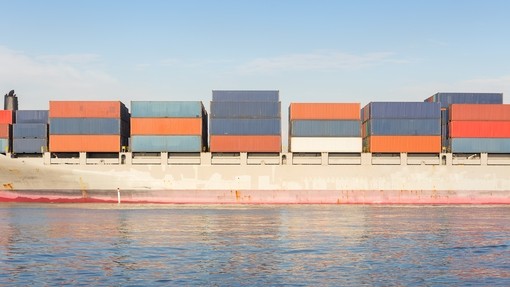Sea Tank Shipping AS (formerly known as Tank Invest AS) –v- (1) Vinnlustodin HF (2) Vatryggingafelag Islands FH [2018] EWCA Civ 276 (the “AQASIA”)

Details
The Court of Appeal has upheld the High Court’s 2016 findings on the meaning of ‘unit’ in Article IV rule 5 of the Hague Rules, and whether it applies to limit liability for bulk cargoes, resolving a long-standing debate. Our full commentary on the High Court case and the hearing for permission to appeal can be found in our previous articles.
Factual background
The case concerned damage sustained to ‘2,000 tons cargo of fishoil in bulk’, as described in the charterparty, on board the tanker “AQASIA”. The charterparty incorporated the Hague Rules, including Article IV rule 5. It was the claimant cargo interest’s case that the word ‘unit’ referred to a physical item of cargo or to a combination of physical items bundled together for shipment. The defendant owners argued that ‘unit’ could be read as meaning the unit used to quantify the cargo (e.g. kilograms, tons, bushels etc).
In his judgment, Sir Jeremy Cooke held that in the package limitation under Article IV rule 5 of the Hague Rules, ‘package or unit’, does not apply to bulk cargoes and that if it could apply, the only legitimate application would be by way of interpreting the word ‘unit’ as ‘freight unit’. The word ‘unit’ refers to a physical item (or composite of items) rather than an abstract unit of measurement. In the view of the judge, it could not have been in the contemplation of those who drafted the Hague Rules that ‘unit’ should apply to bulk cargo, not least because in 1924, the (gold) value of £100 per unit measure was far greater than the value of most bulk cargo, irrespective of which ‘unit’ of weight or measure applied.
The owners had been granted leave to appeal on two grounds:
- The judgment failed to give effect to the clearly expressed intention of the parties to the charterparty, that owners should be entitled to limit their liability in respect of this bulk cargo pursuant to Article IV rule 5
- The judge erred in concluding that the limitation of liability in rule 5 of the Hague Rules did not apply to bulk cargo
Legal issues
The appeal was dismissed on both grounds. Lord Justice Flaux gave the leading judgment, concluding that the clear meaning of ‘unit’, as confirmed by the travaux préparatoires, authorities, textbook and academic commentaries, was as a physical item of cargo or shipping unit and not a unit of measurement or a freight unit. Lord Justice Richards and Lady Justice Gloster concurred.
While all parties agreed that, as a matter of ordinary language, the word ’unit’ was capable of meaning both a physical item of cargo and a unit of measurement, such as weight or volume, the critical question for the purposes of this appeal was its meaning in the particular context of Article IV rule 5. Lord Justice Flaux gave four reasons for agreeing with the High Court’s conclusions on construction.
First, the word ‘package’ in the rule clearly referred to a physical item and the use of the word ‘unit’ in the same context pointed strongly to both words being concerned with physical items.
Second, that this conclusion was borne out by Article III rule 3(b) of the Hague Rules which distinguished between ‘package or pieces’ (’unit’ being synonymous with ‘piece’) and weight or quantity, because these are seen as different and therefore separately specified.
Third, that it did not follow from the wide definition of ‘goods’ in Article I, that every provision in the Rules applied to every type of goods: some provisions were clearly inapposite to particular types of goods.
Fourth, that the appellant’s construction of ‘unit’ as potentially having both meanings, was a powerful point against their argument. It would cause problems where, for example, a cargo is described as both a number of units in the charterparty and by total weight in the bill of lading: which of the two is taken to be the unit? It was far from obvious that in such a case, the unit would be assumed to be the physical item and not the weight.
The first instance judge had noted that the low value of bulk cargoes when the Hague Rules were first adopted helped to explain why no one considered it necessary to insert an applicable term in the limitation provision. The appellants argued that the judge’s reasoning on this point was to say that the construction of the words should be frozen in the economics of the 1920s. However, the appellant appears to have misunderstood the judge’s reasoning, that it is only the increase in commodity prices since then which has led ship owners to contend now that Article IV should apply to bulk cargoes - but this was no basis for straining the language of the provision to make it apply.
By far the greater part of Lord Justice Flaux’s judgment was given over to discussion of the support for this construction found in the travaux préparatoires, authorities and texts. His lordship cited the 2017 Supreme Court decision in the “OCEAN VICTORY” [2017] UKSC 35; [2017] 1 WLR 1793 which stated that the ordinary meaning of words in a treaty should first be interpreted in the light of the treaty’s object and purpose, and that recourse could be had to supplementary means, such as preparatory texts, to confirm that meaning or sometimes to determine it if the result was manifestly absurd or unreasonable. In this respect, the travaux préparatoires of the Hague Rules showed that the intention was to add the word ‘unit’ in rule 5 only to cover items shipped as single units and not packaged in any way. It was clear that applying the limitation to bulk cargoes had, by that stage, been abandoned.
English authorities such as the “ARAMIS” [1987] 2 Lloyd’s Rep 58 were not of any assistance. While not directly dealing with the point, the dicta showed that the cases clearly proceeded on the assumption that ‘unit’ meant a physical item. Indeed, his lordship agreed with Mr Justice Andrew Baker’s recent assessment of the same wording in the “MAERSK TANGIER [2017] EWHC 654 (Comm); [2017] 1 Lloyd’s Rep 580, that English law considers units under the Hague Rules to be ‘identifiably separate items of cargo, as in fact shipped’. The authorities from Commonwealth jurisdictions that were directly on point also supported this construction, as did almost all the leading text books.
The appellants argued, in the alternative, that even if the limitation did not apply to bulk cargoes, it should be construed to apply in this case in order to give effect to the bargain struck between the parties. There was a long-standing market expectation since the Hague Rules were enacted that ship owners could limit their liability for bulk cargoes by incorporation of clause 26 of the London Form. However, in the Court’s judgment, this argument was misconceived. The correct construction of the charterparty was that the appellant was entitled to rely on no more than the provisions of Article IV, and the word ‘unit’ could not change because of the nature of the contract of carriage. Furthermore, there was no evidence whatsoever of market expectation or practice, and when confined to the particular facts of this case, there was no applicable or identifiable ‘unit’.
Comment
Lord Justice Flaux’s judgment was comprehensive, not only in its approval of Sir Jeremy Cooke’s first instance decision but also in its detailed consideration of the leading textbooks, authorities and commentary that supported his construction. His lordship did point out that the appellants could have incorporated some form of deeming provision to give ‘unit’ a different and clearly defined meaning, and therefore limit liability under the Hague Rules. However, in the absence of such bespoke protection being written into the charterparty, the long-running debate has been finally resolved.
This article originally appeared in the March 2018 edition of shipping case digest. Other articles include:






